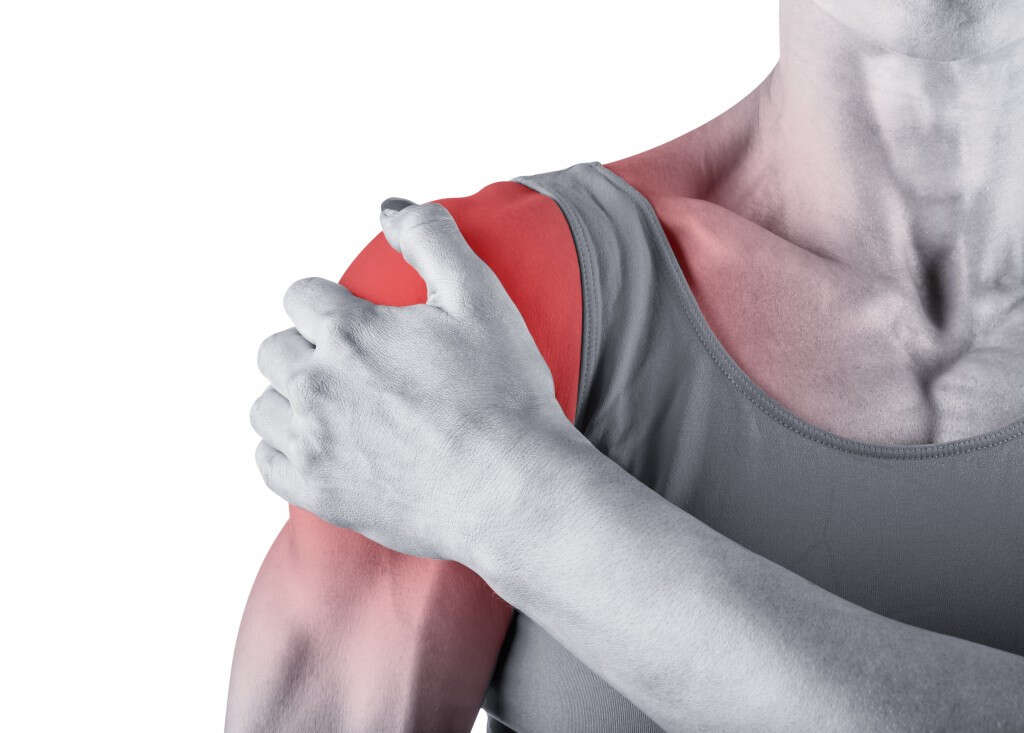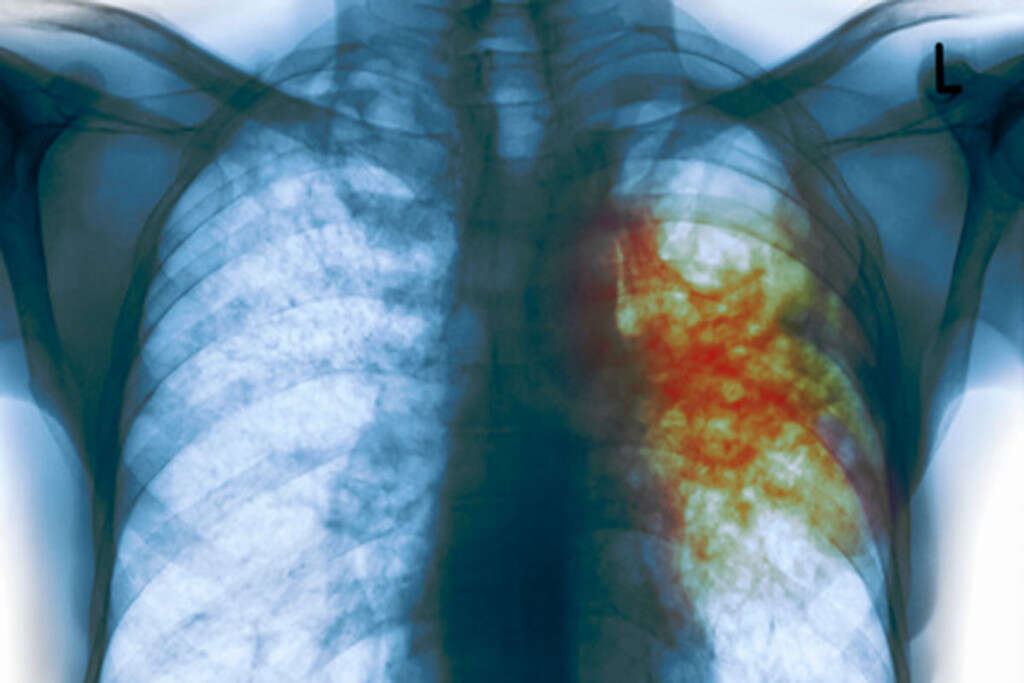10 Causes of Frozen Shoulder
Our shoulders help to provide us with the physical strength that we need, as well as excellent mobility. Being able to rotate our shoulders provides us with excellent dexterity and it is a dexterity that we rely upon in our day to day lives. When we lose this dexterity, though, life can become a lot harder than usual.
At the points where our arms meet our shoulders is what is known as the shoulder capsule. This is connective tissue that helps to hold everything together. Sometimes, though, these tissues can thicken and become tight around the joint. This can cause pain and limit mobility in what is known as a frozen shoulder. Although treatable, it can become permanent, so should be treated as soon as possible.

Cause #1: Stroke
Our brains are wonderful things. They allow us to do so much, even investigating the secrets of the universe. They are not perfect, though, and things can go quite wrong with them. One potential problem is stroke and it can be devastating to both the victim and their loved ones. A stroke will result in various symptoms, including frozen shoulder.
Frozen shoulder is actually very commonly experienced by people that have had a stroke. Some studies show that 72% of all stroke victims will experience the condition. It is common for stroke victims to undergo treatment for frozen shoulder in addition to treatment for their other symptoms.

Cause #2: Broken Arm
The bones in our arms are quite strong, but they are far from invincible. They can be broken with enough force and a broken arm can be very painful. Treatment can take months, even years in some cases. It can also produce numerous other symptoms including frozen shoulder.
Any trauma that is significant enough to break the bones in your arm will have quite an impact on your body. This can affect the shoulder joint and cause the protective tissues around your shoulder joint to thicken. A frozen shoulder will often need to be treated alongside setting your bone and helping it to heal.

Cause #3: Rotator Cuff Injury
Our arms are attached to our shoulders by a group of muscles and tendons known as the rotator cuff. Not only do they help to keep our arms firmly attached, but they also give us the strength and mobility we need. The rotator cuff is very important to us but it is prone to injuries.
The rotator cuff is often put under a lot of stress and is also often exposed to impacts. This is especially the case among physical laborers and athletes. Sometimes, this can lead to the muscles and/or tendons picking up injuries and this can result in a frozen shoulder.

Cause #4: Surgery Recovery
Surgery is a fairly common procedure nowadays. While we will generally avoid it where possible it can sometimes be necessary. Even the most routine of procedures can occasionally lead to unwanted symptoms. Depending on the surgery in question, a frozen shoulder can be experienced during recovery.
Medical experts are well aware of the need to help the patient recover from surgery. This can mean medicines, therapy, or in many cases, a combination of both. If you are experiencing a frozen shoulder after surgery, you should let your doctor know so that it can be treated accordingly.

Cause #5: Diabetes
Diabetes is a condition in which we are unable to regulate our blood sugar levels. This is a common problem throughout the world. Patients will sometimes need to use insulin to help them as well as regulating their diet. It can result in a range of symptoms and frozen shoulder is one of them.
Diabetes can actually affect the skeleton in various ways and the shoulder joints are often targeted. In some cases, it can even be used to help diagnose type 2 diabetes. If diabetes is suspected then the patient should undergo tests to reach a full diagnosis.

Cause #6: Cardiovascular Disease
Our cardiovascular system is always hard at work making sure our body has what it needs to survive, and even thrive. Even when we are sleeping it is hard at work and if it stopped working for even a short amount of time, we would be in serious trouble. Problems can develop, though, and their seriousness ranges from being uncomfortable to deadly.
There are various cardiovascular diseases that can affect us in different ways. The disruption of the flow of blood and nutrients around the body can affect us in various ways. One symptom of cardiovascular disease is frozen shoulder.

Cause #7: Underactive Thyroid
The thyroid is a gland that is located in the neck and is responsible for releasing various hormones into our bodies. These hormones affect our metabolism and a shift in the balance of these hormones can affect us in a number of ways. An underactive thyroid is a condition where the gland is not producing and releasing as many hormones as it should be.
An underactive thyroid will result in various symptoms including but not limited to weight gain, physical weakness and fatigue. Another fairly common symptom is a frozen shoulder. It can also lead to pains and stiffness in other joints and muscles in the body.

Cause #8: Overactive Thyroid
The hormones that are flowing through our bodies have a considerable impact on our lives. In addition to helping our organs to function effectively, they also help determine our mood and they can have a profound effect on our emotions. The thyroid is one gland responsible for hormones in the body and it can sometimes produce more than it should.
With an overactive thyroid releasing too many hormones into the body, the patient can feel symptoms such as anxiety, nervousness and a rapid heartbeat. It can also have an effect on our joints and muscles and frozen shoulder is a fairly common symptom.

Cause #9: Parkinson’s Disease
Parkinson’s disease is a terrible condition that can be devastating to victims and their families. It is a neurodegenerative disorder that affects the patient’s control over their own body. Symptoms are typically a loss of mobility although the disease can affect the patient in some very profound ways.
Patients with Parkinson’s will find that it becomes increasingly difficult for them to move. Early signs include tremors in the hands and difficulty speaking clearly and they can also have difficulty balancing and moving in general. Another symptom of Parkinson’s disease is frozen shoulder. There is as yet no known cure for Parkinson’s but its onset can be slowed and symptoms treated.

Cause #10: Tuberculosis
Tuberculosis, commonly known as TB, is a bacterial infection caused by the Mycobacterium tuberculosis bacterium. It most commonly affects the lungs but can also infect other parts of the body. Symptoms include but are not limited to fever, coughing, coughing up blood and fatigue. It can be fatal if it is left untreated so patients should seek medical assistance as soon as possible.
Tuberculosis is a contagious disease and is often spread by coughing. It can also lay dormant, residing in its host for years without causing any symptoms. One symptom that may lead to the discovery of tuberculosis is a frozen shoulder.











